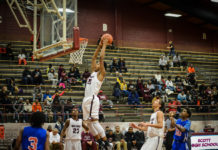Just like long snappers in the NFL, baseball’s official scorers work a thankless position where they’re only recognized if something goes wrong.
Nobody knows this better than Toledo scorer Ron Kleinfelter, who splits his time between the Mud Hens and the Detroit Tigers. He was on duty in Detroit last year as Brad Penny went for a no-hitter.
“In the seventh inning, Brent Morel from the White Sox hit a chopping ground ball down the third-base line,” Kleinfelter said. “Brandon Inge is one of only a couple third basemen that could even get to that ball. He stabbed it into foul territory and almost into left field. Inge tried to set himself to make the throw across the diamond. He didn’t really make a good throw, but it was a tough chance and Morel was safe. I called it a hit. A lot of people believed it was a hit, but as soon as they put that on the scoreboard, 37,000 people collectively booed me.”
One fan went beyond booing and threatened Kleinfelter on Facebook.
“My name was in the papers for making that call,” he said. “This guy took the time to look me up on Facebook and send me a message. It said, ‘That was the worst call ever. You should never be allowed to score another Major League game. You are a clown and should be killed.’
“I still remember it word for word. That’s why they’re called fanatics, I guess.”
He was also booed in 2007 when he temporarily cost Detroit’s Placido Polanco his error-less streak. After conferring with umpires the next day, he charged the error to Marcus Thames.
Polanco went on to set an MlB record as the first everyday second baseman to play an entire season without an error.
“Every year there are a couple calls that somebody isn’t going to be happy with,” said Guy Lammers, another Mud Hens scorer. “You just try to make the best call you can and go with it.”
Kleinfelter has scored with the Tigers since 2005 and joined the Mud Hens in 1999 after Lammers alerted him to an opening. They might have both missed out on the opportunity to be scorers if Lammers hadn’t been listening to a radio broadcast in 1995.
“I was listening to the Hens on the radio in 1995 and Jim Weber said they were looking for an official scorer,” Lammers said. “I called the Mud Hens and talked to someone in the front office. They said they had found somebody but put my name on file. In 1996 I got a call before the season started that they were looking for somebody. It was luck that I fell into this position. I was just a fan who watched and listened to a lot of games.”
At every Mud Hens game there is one official scorekeeper and one data caster who provides live stats for MlB.com. Lammers and Kleinfelter rotate between the positions with three other employees.
“The more you do it, the more you get a feel for the game and what kind of calls should be made,” Lammers said. “There isn’t too much pressure because I’ve been doing it for a while.”
Kleinfelter has played baseball his entire life and has been coaching his son’s teams for the past four years, but he cautions it takes more than that to be an official scorer.
“A lot of people play baseball and know a lot about it, but not a lot of people could sit down and be an official scorer or do data casting,” he said. “You have to have a feel for the game and understand how to apply things like ordinary effort in determining hits and errors. You have to watch the game with intense concentration.”
Another advantage to scoring games at Fifth Third Field is the quality of the field itself, Lammers said.
“Ron and I have the perspective of having been official scorers at Ned Skeldon stadium,” Lammers said. “The field at Fifth Third Field is in immaculate condition. There are rarely any bad hops. Back at Skeldon, the field wasn’t in as good of shape. You’d have to decide if it was a bad hop. It was more difficult being an official scorer there.”
























